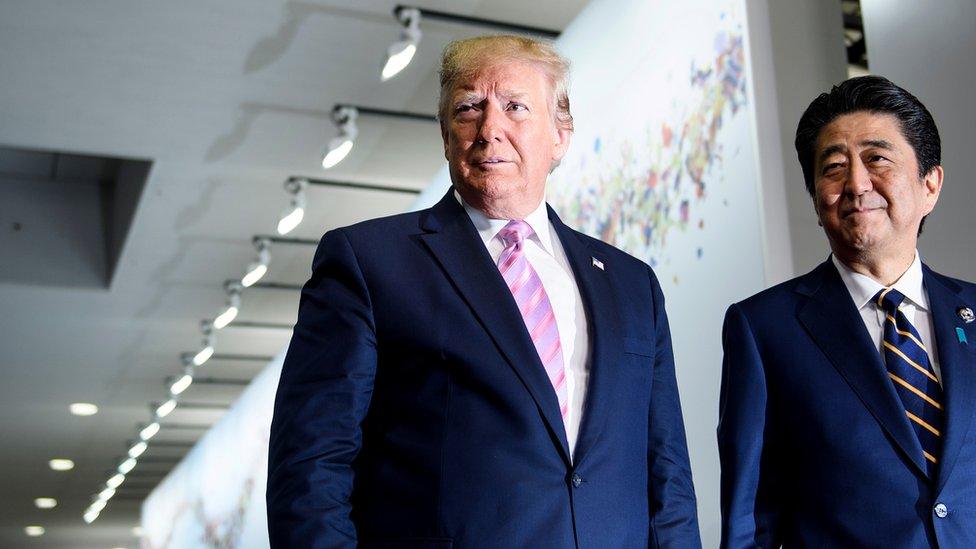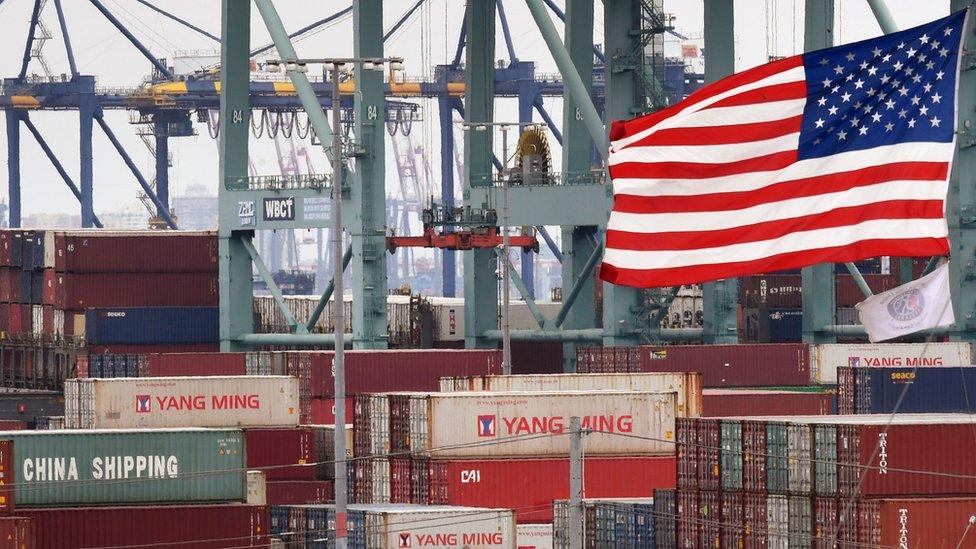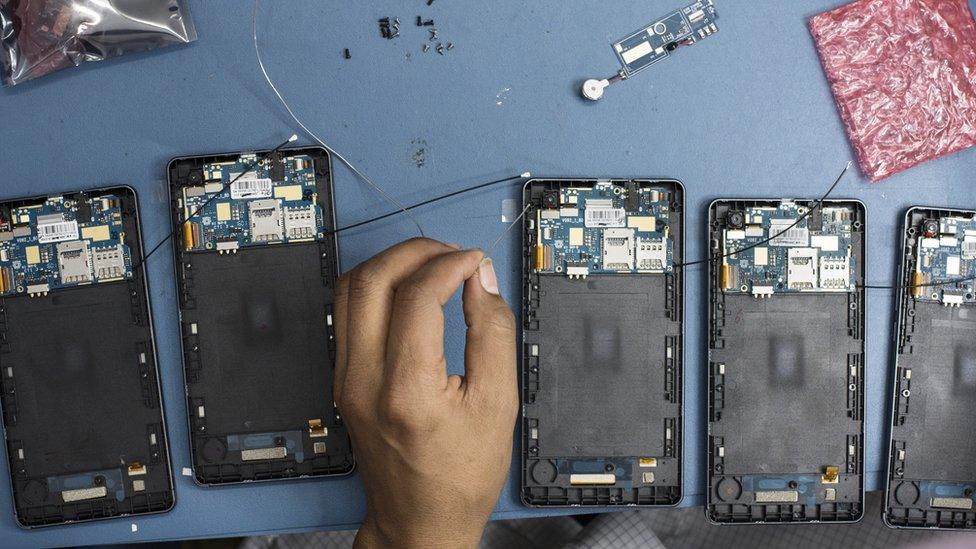US and Japan agree initial trade deal focusing on agriculture
- Published

The US and Japan have agreed an initial trade deal that will eliminate or lower tariffs on certain products traded between them.
Duties on some agricultural goods will be removed or lowered, while digital products will also benefit.
US President Donald Trump said the world's first and third largest economies achieved a "tremendous" deal, external.
The trade agreement did not mention car tariffs of up to 25%, which were previously threatened by the US.
But Japanese Prime Minister Shinzo Abe said he had received assurances that no such tariffs would be imposed, according to media reports.
The US, which had a trade deficit with Japan of $67.6 billion in 2018, external, has held discussions with Japan throughout the year.
Under the deal, over 90% of US food and agricultural products going into Japan will either be free of any duty or receive preferential tariff access, according to the Office of the United States Trade Representative (USTR)., external
Japan will reduce tariffs on products such as fresh and frozen beef and pork, and will immediately eliminate them for certain nuts, fruits and vegetables.
In return, the US will either remove or lower duties on some $40 million of agricultural imports from Japan, including cut flowers, green tea and soy sauce.
According a transcript published by the White House., external, Mr Abe said there would be a "very wonderful, positive impact on the global economy".
The US and Japan have also agreed on preferential treatment for certain digital products.
They will prohibit any duties being imposed on digital products such as videos, music and e-books and will ensure data can be freely transferred across borders.
The US said it looked forward to negotiating a "comprehensive agreement" with Japan, according to the USTR statement.
How about the controversial car tariffs?
The US had been considering levies on some foreign-made car and car part imports, including from Japan and the European Union, but delayed the decision earlier this year.
The new deal did not cover car duties- but Mr Abe said he had been reassured by Mr Trump that the US would not impose tariffs on Japanese cars.
"Between President Trump and I, myself, this has been firmly confirmed that no further, additional tariffs will imposed," Reuters quoted him as saying.
The US has been fighting trade disputes on several fronts over the past year.
- Published16 January 2020

- Published23 July 2019
